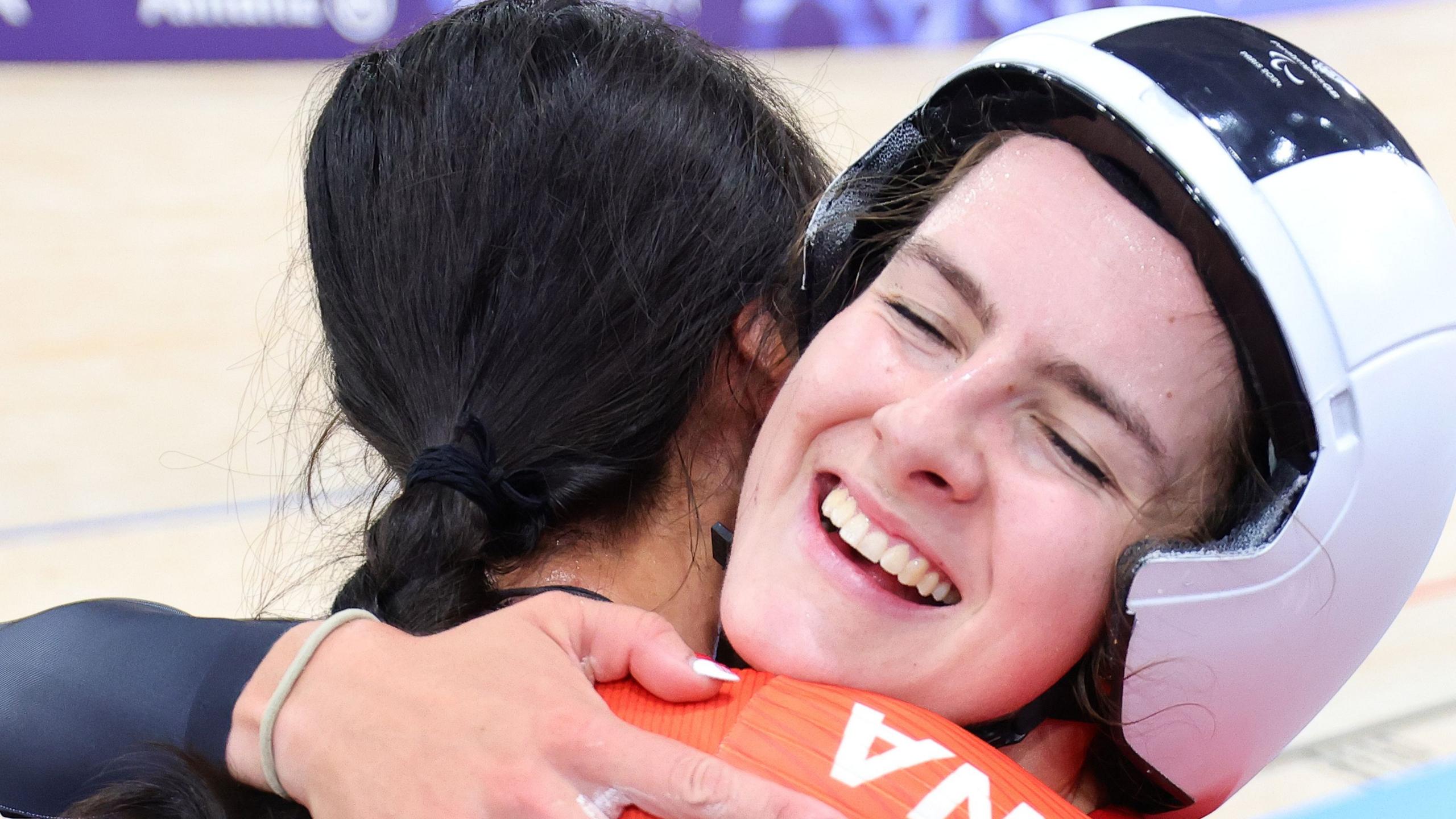Paralympic cyclist set to swap saddles for sandpaper
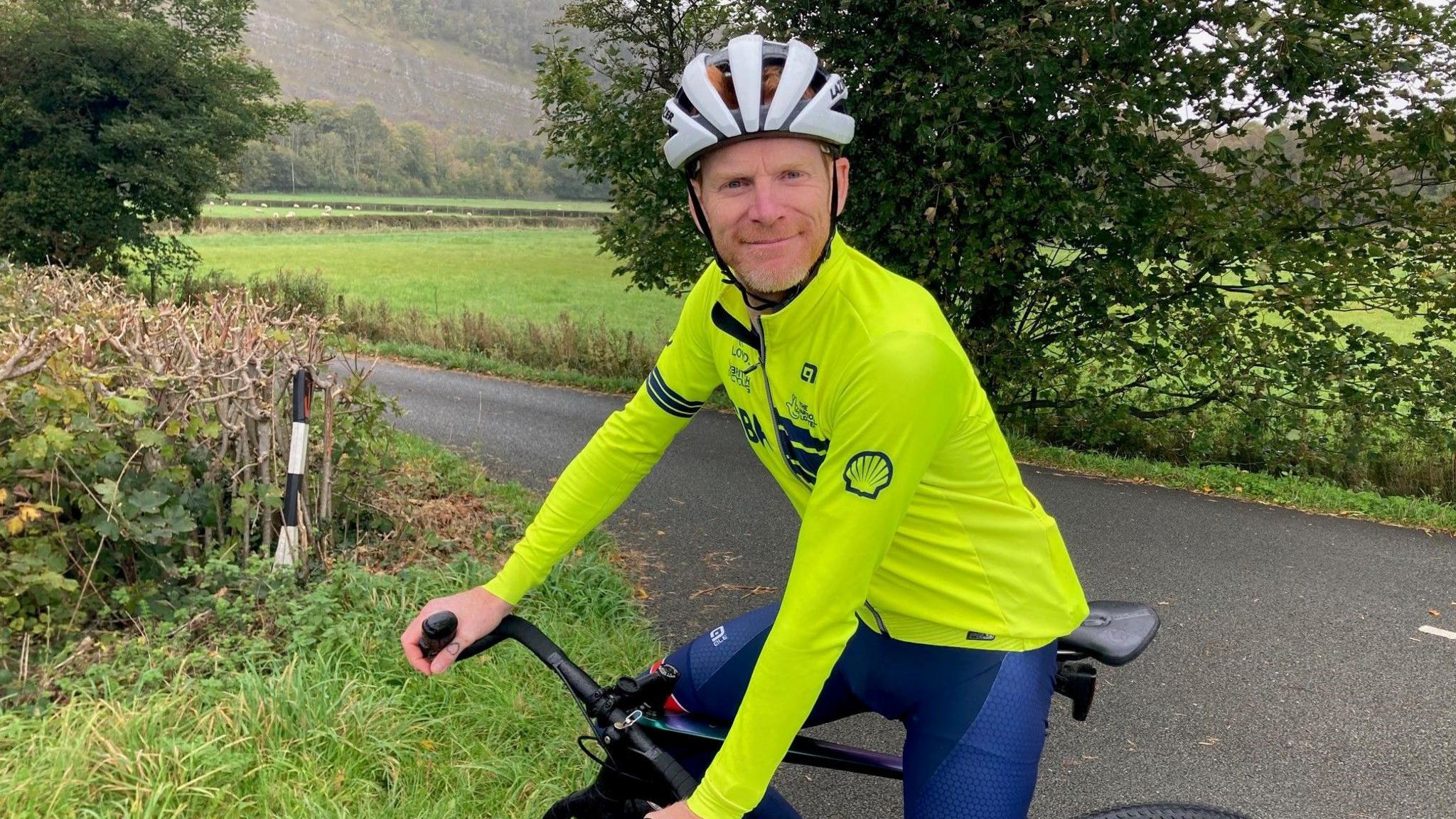
Steve Bate started cycling 14 years ago after being diagnosed with the degenerative eye condition retinitis pigmentosa and says the thought of going blind was 'terrifying'
- Published
For the past 11 years cyclist Steve Bate has been competing for Great Britain, winning more than a dozen Paralympic and World Championship medals.
But with his vision failing he is preparing for one final competition before making the dramatic career pivot from paracycling to carpentry.
Born in New Zealand but based in Hebden Bridge, Bate was diagnosed with retinitis pigmentosa, a degenerative eye condition 14 years ago, which he describes as akin to "tunnel vision".
"When I was diagnosed in 2011, it was the worst news of my life," he recalls.
"It took me a long time to get my head around what was going to happen.
"The thought of going blind was terrifying.
"But now, it's probably one of the best things that happened; it made me get motivated and want to achieve things. And cycling's been a huge part of that."
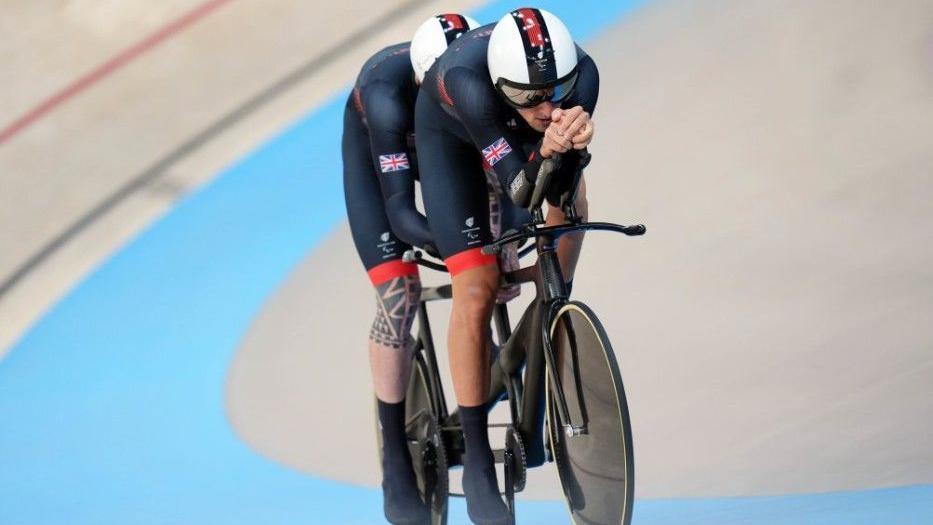
Steve Bate, pictured with pilot Chris Latham, at the Paris 2024 Summer Paralympic Games
The 48-year-old made his first foray into cycling in 2013, attending a talent identification camp with the Great Britain Cycling Team before being paired up with pilot Adam Duggleby
By 2016 the pair were double Paralympic gold medallists - winning both the individual pursuit and road time trial in Rio De Janeiro, as well as claiming bronze in in the road race.
Over the next decade he went on to claim numerous more titles, including silver medals in the men's pursuit at both the 2020 and 2024 Paralympic Games.
But he remains modest about his achievements.
"It's not an individual thing," he said.
"I race on a tandem so I've never actually crossed the line first on my own; that's the funny thing.
"I'm the lucky one who gets to stand next to a mate on the podium."
Steve Bate speaks about his journey to Paralympic glory ahead of the 2024 Paris Games
Now he is preparing for to return to Rio for the UCI Paracycling Track World Championships, he has mixed feelings about bringing the curtain down on his career.
"The Paralympic environment is so special," he said.
"And I know when the team's there in three years, I'll wish I could be part of it. But it's the right decision.
"I won't miss feeling fatigued all the time, the travel and the living out of a suitcase in hotel rooms.
"The hard turbo sessions are brutal when you're not as fit as you should be. And doing six hours in the Yorkshire rain? I won't miss that!"
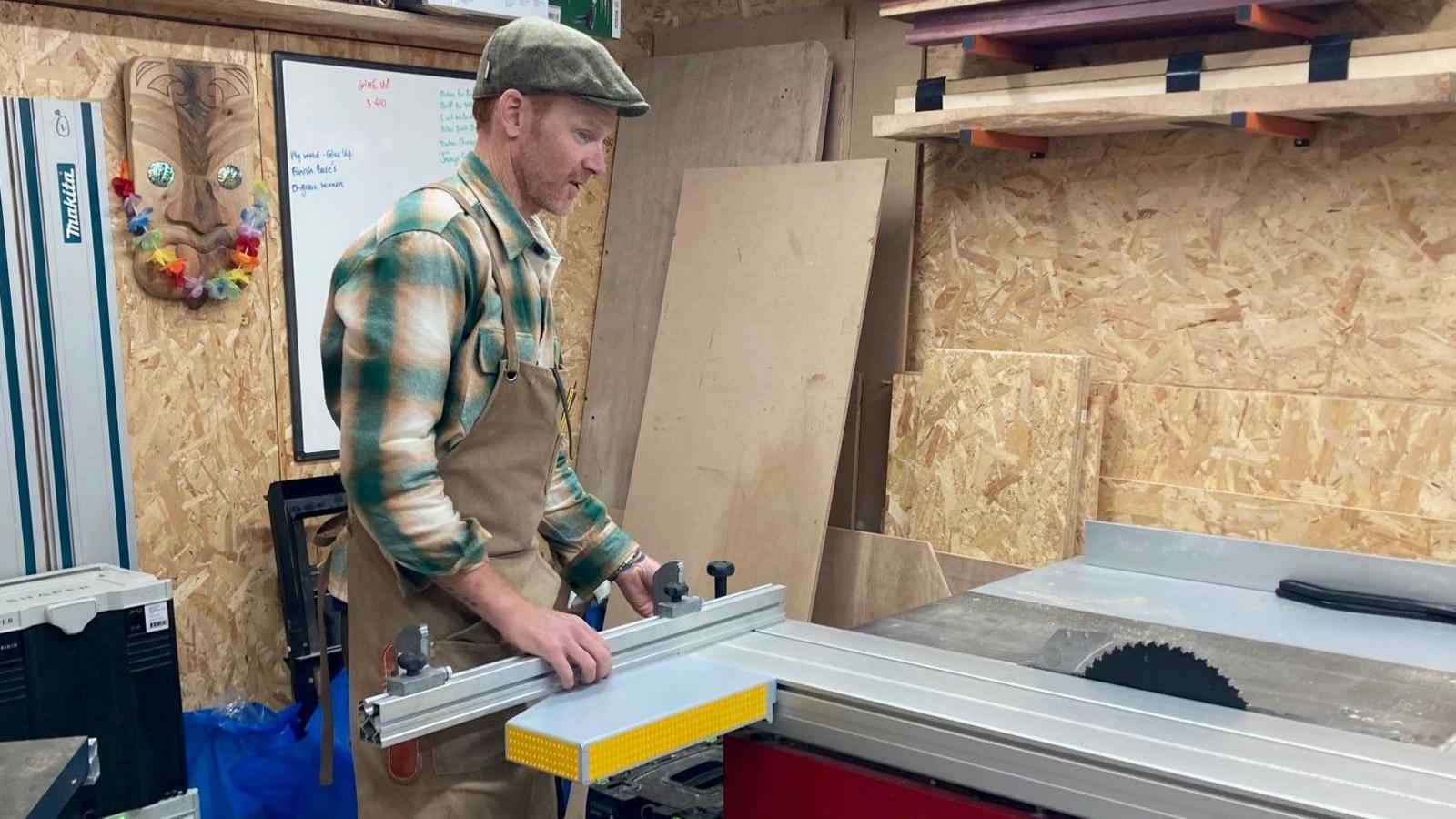
Bate has decided to turn to carpentry once his paracycling career comes to an end
For the past year, Bate has been planning his retirement from cycling, starting with a move to Cumbria with his wife Caroline "for the mountains", and a property with enough room for a workshop so he can "go back to his roots" as a carpenter.
Whilst his deteriorating eyesight would make returning to building sites difficult, a home set-up is easier to manage.
"I realised I had a shoebox full of medals under the bed and wanted to do something special with them," he said.
"Now I'm hoping to help others, whether they're elite athletes or park runners, to display their medals proudly."
His first commission is from British Cycling who have asked him to make the awards for their annual awards ceremony next month.
Bate is carving them from Siberian spruce boards taken up from the National Cycling Centre velodrome in Manchester in 2019, where he trained and competed for many years, alongside household names like Sir Chris Hoy, Dame Sarah Storey and Dame Laura Kenny.
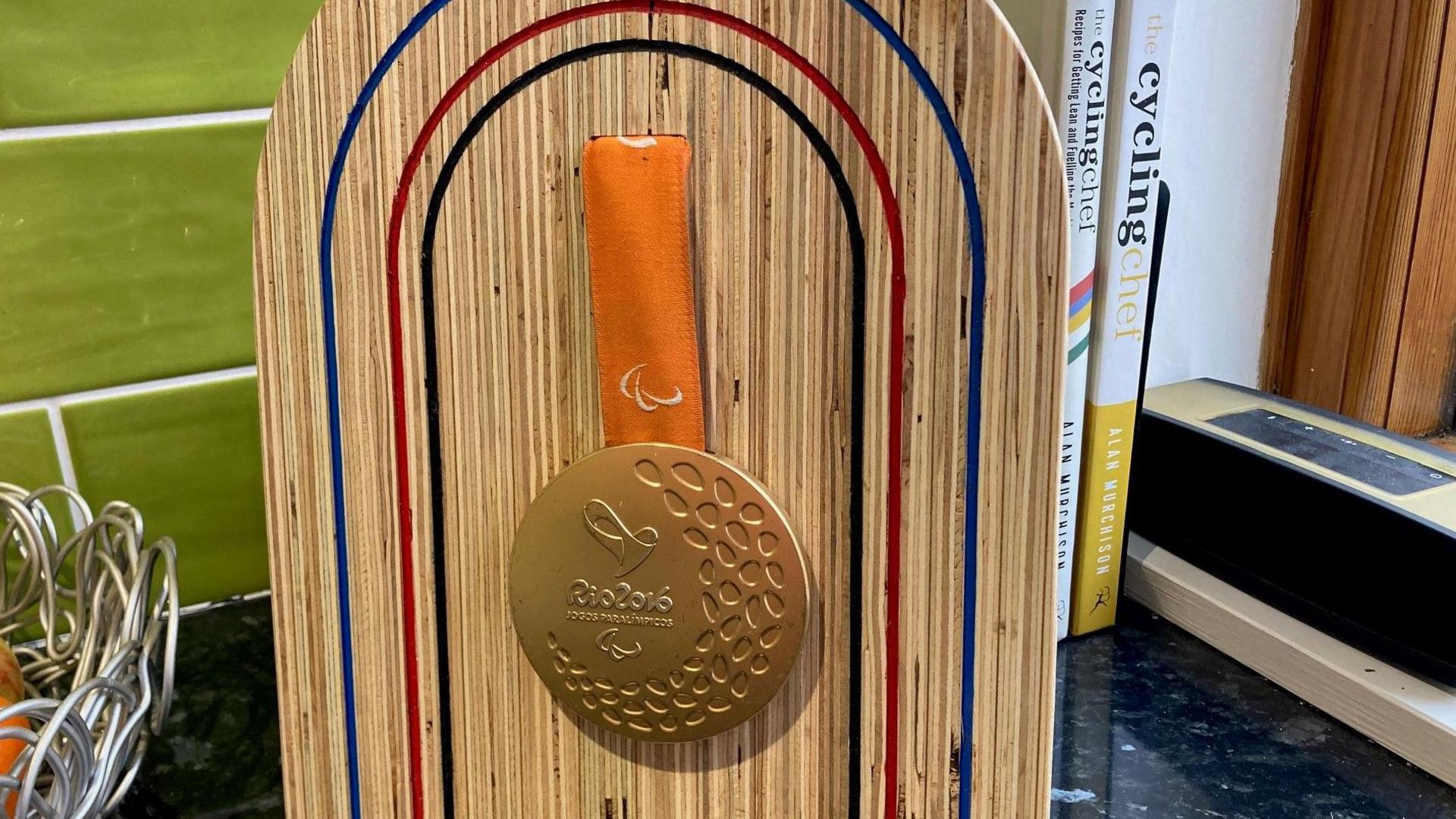
Steve Bate has already created displays for his own medals
But first, there's that tantalising chance to stand on the podium one last time in Rio with his current partner Chris Latham in the 4,000-metre individual pursuit.
"In the big scheme of things, it really doesn't matter," he said.
"I just want to go out there and enjoy it, but it's easy to say that sitting on the sofa drinking coffee.
"I know once that warm-up happens and I zip on that skinsuit and hear those beeps, it'll be game-on."
And it's only when reflecting on those final preparations, for his last ever race, that Bate becomes emotional.
"What a privilege," he says, wiping away an unexpected tear, "I'm just lucky."
Get in touch
Tell us which stories we should cover in Yorkshire
Listen to highlights from West Yorkshire on BBC Sounds, catch up with the latest episode of Look North.
Related topics
- Published23 August 2021
- Attribution
- Published29 August 2024
